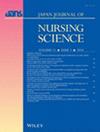Factors influencing the hope of patients with advanced cancer while receiving cancer pharmacotherapy
Abstract
Aim
This study aims to clarify the factors influencing hope in patients with advanced cancer undergoing cancer pharmacotherapy, as influential factors have not been explored in previous studies.
Methods
Participants were patients with advanced lung, colorectal, and breast cancer who were undergoing outpatient pharmacotherapy. A cross-sectional survey was conducted using the Herth Hope Index, the Multidimensional Scale of Perceived Social Support, and the Japanese version of the Integrated Palliative Care Outcome Scale with some additional questions. Data were obtained and analyzed using SPSS version 29.0, with descriptive statistics, t-test, one-way ANOVA, correlation analysis, and multiple regression analysis.
Results
Two hundred valid responses (91.7%) were collected. The average age of the participants was 65.4 years. Multiple regression analysis demonstrated that hope had significant standardized partial regression coefficients with gender (β = −0.137, p = .022), social support (β = −0.246, p = .008), relationship with significant others (β = −0.224, p = .015), sleepiness (β = −0.141, p = .025), nausea (β = −0.159, p = .011), occupation (β = −0.140, p = .021), and economic status (β = −0.124, p = .038) (adjusted R2 = 0.341).
Conclusions
Social support, physical symptoms, and economic and occupational status influence the hope of patients with advanced cancer undergoing cancer pharmacotherapy. Assessing the impact of medication and physical symptoms associated with cancer progression on patients' lives, economic impact of long-term medication, and extent of relationship with people available through work and family may lead to early intervention by identifying individuals who are more likely to experience lower levels of hope.

 求助内容:
求助内容: 应助结果提醒方式:
应助结果提醒方式:


